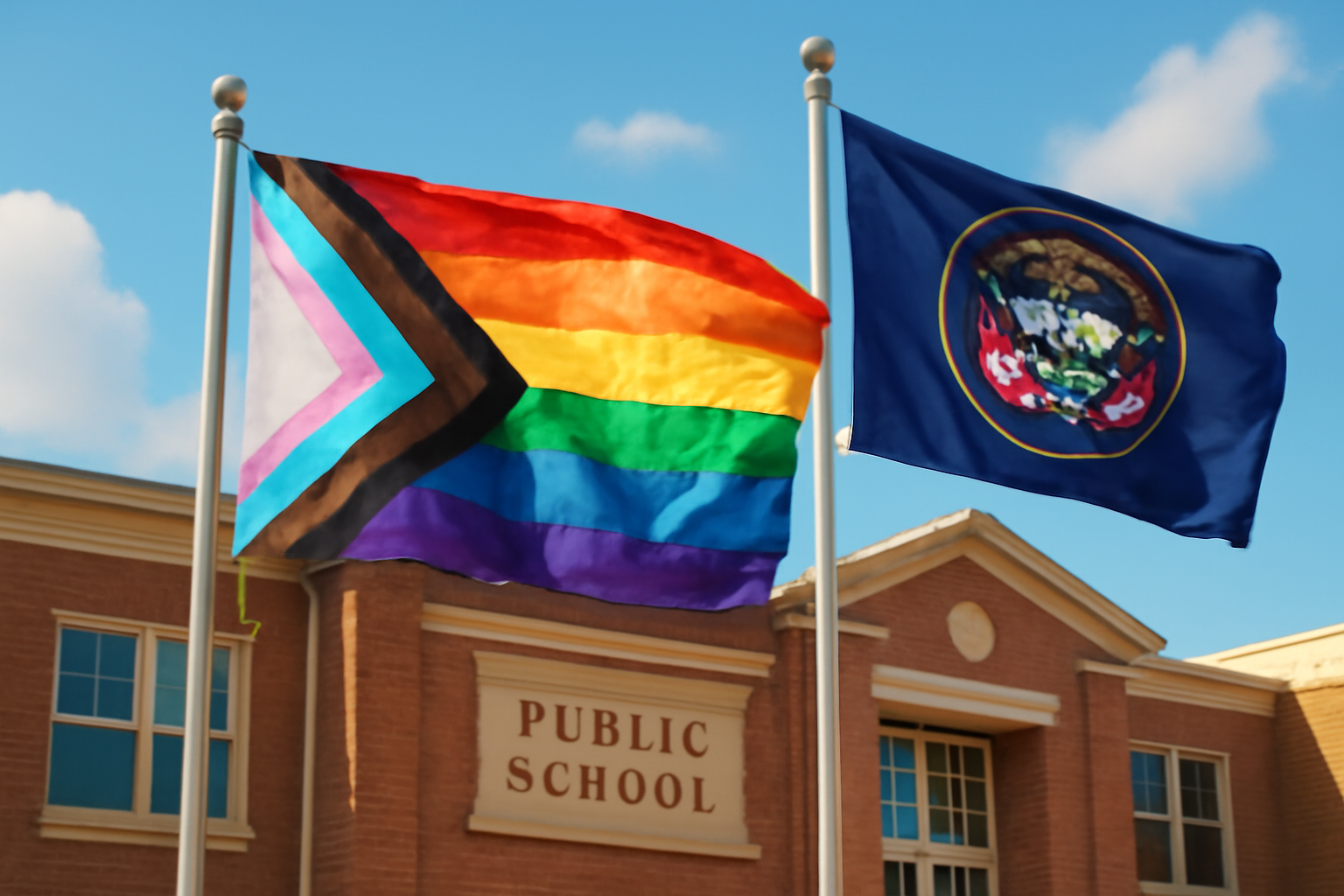
In a move that has sparked widespread discussion and debate, Utah has implemented a new policy that restricts the display of flags at public schools and government buildings. This policy has been interpreted by many as a ban on flags representing various social causes, including the Pride flag, which is a symbol of LGBTQ+ identity and community.
This decision has been met with varied reactions from different quarters. Supporters of the policy argue that it is a measure intended to maintain neutrality in public spaces and prevent the promotion of specific agendas within government institutions. However, critics see it as a targeted move that disproportionately affects marginalized communities and stifles expressions of identity and support.
Background and Implementation
The policy was introduced by Utah state officials and applies to all public schools and government buildings within the state. It specifically dictates that only the national flag, state flag, and flags representing governmental functions and events are permitted to be flown on these premises. The policy was put into effect following a series of meetings and discussions among state legislators and education administrators.
Officials defending the policy have stated that the objective is to ensure that public institutions remain spaces that represent all citizens equally, without favoring any particular group or cause. They argue that such a stance is necessary to maintain focus on educational and governmental responsibilities without external influences.
Reactions and Implications
The decision has received significant backlash from activists and advocacy groups, particularly those representing LGBTQ+ communities. They argue that the policy effectively erases an important symbol of inclusion and diversity from public view, which can be detrimental to the visibility and acceptance of LGBTQ+ individuals.
"Flags like the Pride flag are more than just symbols; they represent community, acceptance, and the ongoing fight for equal rights," said one advocate from a local LGBTQ+ organization. "By banning these symbols, the state is sending a message that these values are not welcome in public spaces, and that is deeply concerning."
In response to the policy, some schools and local government bodies are seeking ways to continue supporting diverse communities through alternative means, such as inclusive programs, discussions, and events that celebrate diversity and promote understanding.
Legal and Social Considerations
The legal implications of Utah's flag policy are also being scrutinized. Some experts have raised questions about the potential challenges this decision could face in courts, especially regarding freedom of speech and expression. The intersection of government policy and individual rights is a complex legal area, and how this new policy will be navigated remains to be seen.
Socially, the policy has reignited discussions about the role of symbols in public spaces and how societal values are reflected in government decisions. While some see this as a necessary step to ensure neutrality, others view it as a regression in the progress made towards inclusivity and representation.
Looking Forward
As the policy rolls out, many eyes will be on Utah to observe the effects of this decision. Will it prompt similar actions in other states, or will it face significant pushback leading to revisions or repeal? The discourse continues as communities, policymakers, and legal experts weigh the implications of such actions.
Meanwhile, supporters of the LGBTQ+ community continue to advocate for the visibility and rights of all individuals, emphasizing the importance of symbols like the Pride flag in promoting a society that accepts and celebrates diversity. They argue that visibility in public spaces is crucial for the ongoing struggle for equality and inclusion.
As the situation develops, it serves as a reminder of the ongoing conversation about identity, representation, and the role of government in recognizing and supporting diverse communities. The outcome of this policy, both in its immediate impact and long-term effects, will likely influence the national conversation on these important issues.
For now, the discussion continues, as stakeholders from all sides seek to find common ground in a complex socio-political landscape.
Related Posts
"Wicked": Unveiling Fiyero's Destiny - Hidden Clues You May Have Overlooked
Have you ever been swept away by a story that leaves you unraveling clues long after it ends? That's exactly what "Wicked" does with its enchanting narrative, unforgettable songs, and complex characters. Among them, Fiyero stands out as a charming prince whose surprising metamorphosis by curtain fall makes us wonder: were there hints about his fate scattered throughout? Let's dig deep and see if " [...]
Triumphant Trans Woman Wins Legal Battle and Inspires Others to Stand Up for Their Rights
Breaking new ground: a landmark victory in transgender rights After battling in courtrooms and enduring endless challenges, Diana Portillo, a transgender woman, has secured a monumental victory in her decade-long fight against workplace discrimination. The result? Nearly $1 million awarded in a historic settlement. But this isn't just a win on paper—it represents a powerful precedent in combati [...]
Pride Month in Latin America: Protests and Demands for Equality
**Celebrating Pride and advocating LGBTQ+ rights in Latin America** Pride Month in Latin America was a lively mix where celebration met activism. Communities united, not just throwing a party but making a stand—demanding equality and pushing governments toward better protection and rights recognition. Throughout Latin America, pride events erupted in marches and cultural displays, each with a c [...]